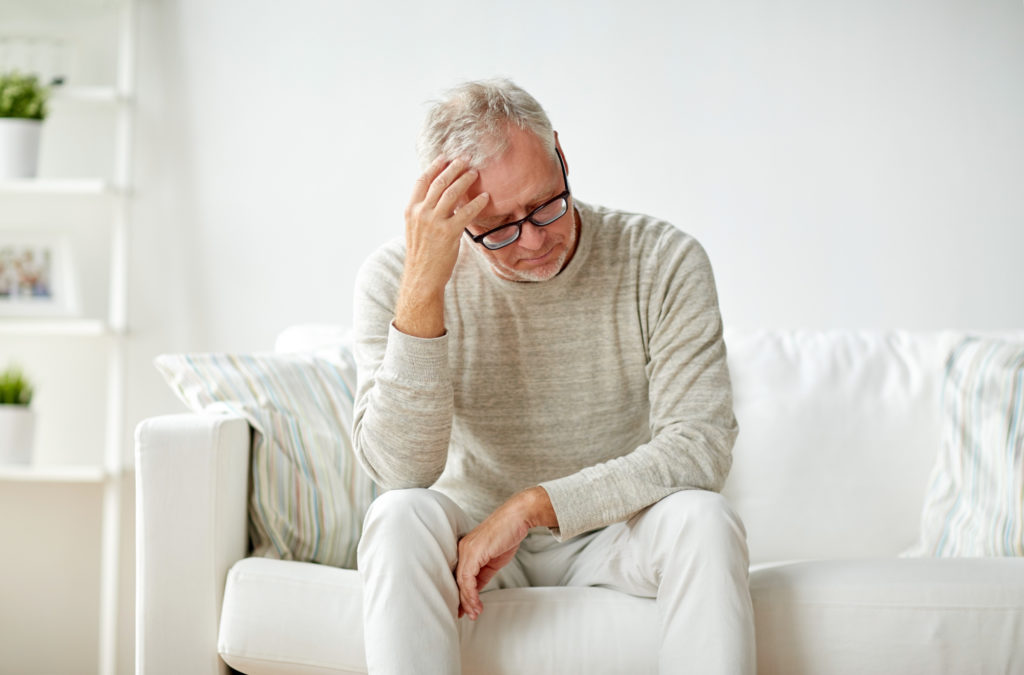For many women, hair loss is a distressing, challenging situation. But, unfortunately, we don’t often talk about it. Still, it’s important to have all the information you need to deal with it.
We’ll discuss the different causes of hair loss in women and introduce you to solutions so that you can take control of your hair health.
Understanding Hair Loss in Women
Knowing the different stages of hair growth can be an informative and helpful place to start if you’re concerned about your hair health.
What is the hair growth cycle?
Anagen Phase: The Growing Phase
The anagen phase is also known as the growth phase. This is the phase where your hair is actively growing and can last anywhere from two to eight years. The length of this phase depends on genetics and can vary from person to person. On average, each strand of hair will grow about a half-inch per month during this phase.
Catagen Phase: The Transition Phase
The catagen phase is a brief transitional phase that signals the end of the anagen phase. During this phase, which lasts only about two or three weeks, your hair follicles shrink, and your hair no longer grows. Instead, it detaches from your blood supply and prepares to fall out.
Telogen Phase: The Resting Phase
The telogen phase — also known as the resting phase — is when your hair follicle takes a break before beginning the growth cycle again. This phase lasts around three months for most people. It’s important to note that during this phase, your hair is not actually resting; instead, the follicle is dormant, and shedding may occur more frequently.
Exogen Phase: The Shedding Phase
The exogen phase is when your hairs enter their final stage before falling out. During this time, which can last up to two weeks, old hairs are shed to make way for new ones.
Explore Our Hair Loss Solutions.
What is hair loss in women?
It’s perfectly normal to lose 50-100 strands of hair per day. This shedding process is natural and makes room for new hair growth. However, it’s important to understand that hair shedding is not the same as hair loss. It depends on how much hair you lose and if the new growth can keep up with the shedding.
When the shedding rate exceeds the regrowth rate, hair loss becomes a problem. Sometimes, hair follicles stop growing altogether, or the new hair growth cannot keep up with the shedding. This can result in thinning hair, receding hairlines, or bald spots.
Hair loss can happen gradually or suddenly and signify an underlying health condition like a hormone imbalance.
How common is female hair loss?
Statistics on hair loss in women in the past have been challenging to obtain because it’s often considered a cosmetic issue and isn’t always reported. Furthermore, the focus for hair loss has typically been placed on men, with male pattern baldness being the most researched form. And, of course, a certain amount of shame and embarrassment can be attached to hair loss in women, which may prevent them from seeking help or talking about it openly.
That being said, researchers estimate that anywhere from six percent to 38 percent of healthy women experience varying degrees of frontal and/or frontal-parietal hair loss in their lifetime. And studies from the American Hair Loss Association have found that 40 percent of American hair loss sufferers are women.
We also know from studies that hair loss in women begins during their 20s and becomes increasingly more common with age. For example, 12 percent of women will experience significant hair loss by 29 years of age, 25 percent by 49 years, 41 percent by 69 years, and more than 50 percent at 79 years of age or older.
As we can see, this is not an uncommon or isolated issue for women. Therefore, it’s important to remember that if you’re experiencing hair loss, you are not alone.
What is female hair loss called?
Alopecia is the general medical term for hair loss. There are many types of alopecia that healthcare providers may diagnose, but additional conditions can cause hair loss in women that may not necessarily fall into the alopecia category.
Common hair-loss diagnoses for women include:
Androgenetic Alopecia (Female Pattern Baldness)
One of the most common forms of hair loss women experience is androgenetic alopecia — also known as female pattern baldness and female pattern hair loss.
Women with this condition may notice that their hair is thinning, but they will not necessarily experience complete baldness. In fact, many women with female pattern baldness still have a full head of hair. They just have less hair than before.
This form of hair loss is usually attributed to genetics and hormones.
Frontal Fibrosing Alopecia (FFA)
Frontal fibrosing alopecia (FFA) is a type of hair loss that most often affects postmenopausal women. It’s characterized by receding hairlines, thinning hair around the temples, and bald spots on the scalp. In some cases, FFA can also cause eyebrows to thin or fall out.
While the exact cause of FFA is unknown, it’s believed to be linked to changes in hormone levels. However, it’s also thought that genetics may play a role, as this condition often runs in families.
Alopecia Areata
Alopecia areata is a type of hair loss where hair follicles suddenly stop growing, resulting in patchy bald spots on the scalp. This hair loss can occur at any age, but it generally appears in teenagers and young adults under 30. In some cases, it can also lead to complete baldness (alopecia totalis) or loss of all body hair (alopecia universalis).
This condition is thought to be caused by an autoimmune reaction in which the body’s immune system mistakenly attacks the hair follicles. However, it’s also believed that genetics may play a role, as this condition often runs in families.
Central Centrifugal Cicatricial Alopecia (CCCA)
Central centrifugal cicatricial alopecia (CCCA) is a type of hair loss that most often affects women of African descent over the age of 30. It’s characterized by a receding hairline, bald spots in the central part of the scalp, and thinning hair that spreads from the top of the head to the sides and back.
Symptoms that lead to this hair loss pattern include itching, burning, redness, and flaking of the scalp. This results in the hair follicles’ scarring, leading to permanent hair loss.
The exact cause of CCCA is unknown, but it’s believed to be associated with certain hair treatments, including hot combs, tight braids or weave extensions, and chemical straighteners. It has also been linked to gene mutations, found in approximately 25 percent of patients with CCCA.
Traction Alopecia
Traction alopecia is a type of hair loss caused by tight hairstyles that pull on the hair over time. This can happen with hairstyles like cornrows, tight ponytails, or using heated styling tools too often.
Women who are constantly putting strain on their hair are at risk for developing traction alopecia. If caught early enough, this type of hair loss is often reversible. However, if left untreated, it can lead to permanent hair loss and scarring of the scalp.
Telogen Effluvium
As we discussed in the hair cycle, hair goes through different growth phases. The telogen phase is the final stage when the hair follicle rests, and the hair falls out.
Telogen effluvium is a type of hair loss that can occur when there’s a disruption to the normal hair cycle. This can be caused by physical or emotional stress, a major illness or surgery, hormonal changes, crash dieting, or an insufficient intake of protein and other nutrients.
In most cases, telogen effluvium is temporary and resolves on its own within six to nine months. However, in some cases, it can lead to chronic hair loss.
Anagen Effluvium
Anagen effluvium is a type of hair loss that occurs when the hair follicle is damaged during the anagen, or growth, phase. This can be caused by exposure to certain chemicals, such as those used in chemotherapy treatments for cancer.
Anagen effluvium usually results in diffuse hair loss, affecting the entire scalp rather than specific bald spots. This type of hair loss is often temporary, but in some cases, it can be permanent.
Explore Our At-Home Hormone Testing to Determine Your Hormone Levels.
Reasons Why Women Lose Their Hair
We’ve touched on some primary reasons women experience hair loss — genetics and hormones. But there are other causes of hair loss in women that need exploring. So let’s take a closer look at all of them now.
Genetics
Approximately 30 million women in the U.S. have genetic hair loss, which is the most common type of hair loss in women. This form of hair loss is often called female pattern baldness or female pattern hair loss.
Hormones
Hormonal hair loss in women can be caused by a number of different hormonal imbalances. First, an increase in androgens (male hormones) can lead to hair loss. This can happen during menopause when estrogen levels drop, and testosterone levels rise.
Another way hormones influence hair loss is through changes in the thyroid gland. For example, when the thyroid gland is overactive (hyperthyroidism) or underactive (hypothyroidism), it can throw off hormone levels and cause hair loss.
Certain medical conditions can also cause hormonal imbalances, leading to hair loss. These include polycystic ovary syndrome (PCOS), ovarian cancer, and uterine cancer.
Age
The natural process of aging can also lead to hair loss in women. Our hair follicles begin to shrink as we age, resulting in thinner, shorter, and less vibrant hair.
Medications
Certain medications can also cause hair loss in women. These include birth control pills, blood thinners, beta-blockers, antidepressants, and non-steroidal anti-inflammatory drugs (NSAIDs).
Talk to your doctor if you’re taking any of these medications and experiencing hair loss. They may be able to prescribe an alternative medicine that doesn’t have the same side effects. It’s essential to never discontinue medication without first talking to your doctor.
Nutritional Deficiencies
Certain nutritional deficiencies can also cause hair loss. This is often seen in women with eating disorders or following fad diets that eliminate entire food groups. Nutritional deficiencies can lead to telogen effluvium, where the hair follicles enter a resting phase and stop growing.
Iron deficiency anemia can also cause hair loss. The resulting lack of oxygen in the blood can lead to hair follicle death and thinning hair. For this reason, it may sometimes be confused with hormonal or stress-related hair loss.
Pregnancy and Childbirth
Pregnancy and childbirth are two more reasons why women may experience hair loss. Many women experience excessive hair loss during pregnancy due to decreased estrogen levels. This is normal and usually temporary, resolving within a few months after delivery.
Postpartum hair loss is also common, affecting many women. The American Academy of Dermatology Association clarifies that this is not true hair loss but rather a period of excessive hair shedding caused by falling estrogen levels. For most women, it’s temporary and doesn’t require treatment.
Autoimmune Disorders
Autoimmune disorders may cause hair loss in a variety of ways. Certain ones, like thyroiditis, cause hair loss due to their effect on hormones, as we’ve discussed. Others, such as lupus, can damage the hair follicles as a side effect when lesions form on the scalp. Each is different and needs to be addressed in its own way.
Stress
Physical and emotional stress can cause hair loss in women. This is because stress causes an interruption to the hair growth cycle, resulting in more shedding and less replacement of fallen hairs. Stressful life events like divorce, the death of a loved one, or financial troubles can all lead to hair loss.
Treatment Options for Hair Loss in Women
First things first — you need to determine the cause of your hair loss to decide which treatment option is best for you. This can be done by working with qualified and experienced healthcare professionals like doctors and dermatologists.
With simple hormone testing that checks hormone levels, your doctor can often determine if your hair loss is hormonal. If it is, they will be able to recommend a course of treatment that can help to correct the hormone imbalance and help restore your hair. In addition, if your hair loss is due to nutritional deficiencies, stress, or other lifestyle factors, your doctor will likely recommend making some changes that should help to improve the situation.
Bioidentical Hormone Replacement Therapy
Bioidentical hormone replacement therapy (BHRT) is a treatment that can help women who are experiencing hair loss. The therapy uses hormones that are identical to the ones naturally produced by the body, and it works by replacing the hormones that are no longer being produced. BHRT has many additional benefits and may help to improve overall health, including hair health. It can also help regulate the menstrual cycle, reduce hot flashes and night sweats, and enhance sleep quality. BHRT is available in various forms. Working with a healthcare provider is important to determine the best option for you. Bioidentical hormone replacement therapy has helped many women regain their hair health and achieve their overall wellness goals.
Medications
Medications can offer help to women who are experiencing hair loss. One option is saw palmetto, a dietary supplement or topical treatment thought to block the production of testosterone and other hormones that can contribute to hair loss. Another option is minoxidil, a topical solution applied to the scalp and thought to help stimulate hair growth. Finally, spironolactone is a medication that can be taken orally or topically, and it is believed to block the effects of androgens, hormones that can lead to hair loss. While these medications may offer some relief, it is essential to speak with a doctor before starting any new medication, as they can come with side effects. In addition, it is important to remember that hair loss can be a complex issue with many potential causes, so medications may not be the only solution.
Diet and Supplements
One of the best things you can do to support your hair health is to ensure you’re getting enough protein. Protein provides the building blocks for strong, healthy hair, so it’s essential that you’re getting enough in your diet. Good protein sources include lean meats, poultry, fish, legumes, eggs, and tofu. If you’re vegetarian or vegan, be sure to include plenty of high-protein, plant-based foods in your diet, such as quinoa, nuts, and seeds. In addition to protein, biotin — a water-soluble vitamin that’s part of the B-vitamin family — is also essential for healthy hair growth. You can find biotin in many different food sources, including leafy green vegetables, whole grains, eggs, salmon, avocado, and nuts.
Many nutritional supplements do double duty as hair supplements which can be helpful, particularly if you’re not getting enough of certain nutrients in your diet. In addition to protein and biotin that we touched on above, more essential nutrients for hair health can be found in supplement form. Some of these include:
- Iron – Essential for carrying oxygen to our cells. When we don’t have enough iron, our cells cannot function properly, leading to hair loss.
- Vitamin C – Important for collagen production and helps improve iron absorption. You can take vitamin C supplements in pill or powder form, and they’re often found in multi-nutrient supplements.
- Vitamin D – Helps our bodies absorb calcium and has been linked with a decreased risk of hair loss and regrowth potential for certain conditions.
- Omega-3 Fatty Acids – Great for healthy skin and hair. Omega-3 supplements are generally sourced from fish oil, and you can also get them from specific plant-based sources like flaxseed oil.
- Zinc – A mineral that plays a role in cell growth and immune function. It’s also necessary for healthy skin and hair. A zinc deficiency can lead to hair loss.
- Selenium – An antioxidant that helps protect our cells from damage. It’s also necessary for healthy hair and nails.
- MSM (Methylsulfonylmethane) – A sulfur-containing compound that’s thought to support collagen production. Primarily used for joint and skin health, it’s also been shown to be helpful for hair growth.
Your Next Step
If you’re a woman experiencing hair loss, getting the support you need to help you feel like yourself again is important. Speak with your doctor about your symptoms and what treatment options might suit you. In addition, be sure to eat a healthy diet and take supplements as needed to support your hair health from the inside out. With the proper treatment, you can help restore your hair growth and return to feeling like yourself again.
If you have any questions or want to learn more about our services, please don’t hesitate to contact us. We’re here to help.
The post Hormonal Hair Loss in Women: What You Need to Know appeared first on BodyLogicMD.




Follow Us
Like us on Facebook
Follow us on Twitter
Watch us on YouTube